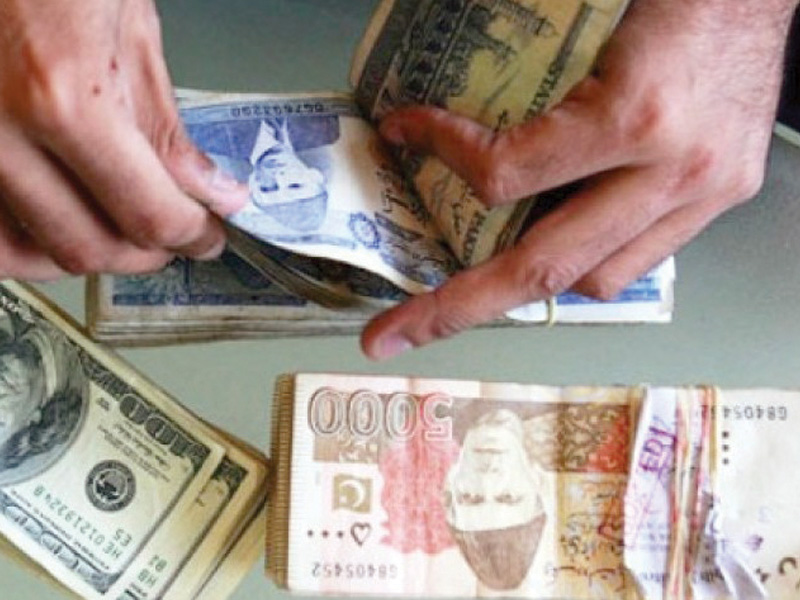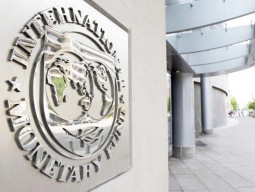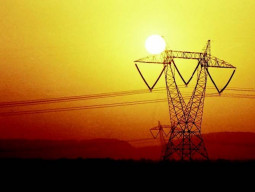
ISLAMABAD:
The International Monetary Fund (IMF) has agreed to send a mission to Pakistan to review the possibility of replacing the existing value addition-based General Sales Tax (GST) with a new single-stage tax, in a bid to stop leakages and enhance revenue.
The IMF’s experts in taxation and fiscal affairs would arrive a month after the ninth review talks are completed. The review talks will begin in Dubai from Monday and will continue for 10 days, said officials privy to the discussions.
Pakistan has requested the IMF to give its views on the possibility of implementing a single-stage sales tax from next fiscal year.
IMF releases $505m to Pakistan amid waiver concerns
Taxation and energy will remain the top concerns of the IMF during the ninth review talks as well, as the government has remained unable to improve performance in these critical fronts, according to officials. A major issue for the IMF and Pakistani teams would be how to bridge the growing shortfall in tax revenues and one of the likely options could be the introduction of more mini-budgets.
Single-stage sales tax
Introduced in 1990s under the influence of international financial institutions, the value-added based GST system could not achieve desired results after successive governments created many distortions by giving tax exemptions and concessions to influential lobbies.
The main thrust of the existing system is to capture the whole supply chain of goods and services, which has been broken due to sector-specific exemptions.
The GST system was fully exploited by both the Federal Board of Revenue (FBR) and the businessmen to their own benefits. On one hand, billions of rupees in fake refunds were given, while on the other, the FBR blocked payments of even genuine sales tax refunds to artificially inflate its tax revenues.
At present, sales tax refunds worth Rs100 billion are treated as FBR’s revenue collection.
The Tax Reforms Commission (TRC) last year gave the idea of replacing the existing system with a new single-stage tax mechanism. In its interim report, the TRC termed the present system of sales tax “cumbersome” and full of leakages and abuses.
One obstacle in working out the single-stage sales tax is the FBR itself that has been denying access of requisite data to tax experts, said officials.
What the IMF says
“We heard some proposals on the single-stage sales tax and we are in the process of formulating our own opinion on it,” said IMF’s Resident Representative Tokhir Mirzoev.
The IMF Mission would also be open to review any other option, which may help enhance revenues.
Despite massively increasing sales tax rates, the FBR’s tax collection remained dismal. From July through September this year, the FBR pooled Rs247 billion in sales tax, which was Rs11 billion or 4.3% less than the collection in the comparative period of the last fiscal year.
For the first quarter of the fiscal year, the IMF had set Pakistan Rs640 billion tax collection target, but actual collection remained at Rs584 billion.
Pakistan was not forced to sell Eurobond: IMF
For the second quarter, the IMF has given Rs750 billion as an indicative target, but the tax machinery has set Rs633 billion target for itself, suggesting that taxation would be one of the contentious issues during the ninth review talks.
Options on the table would be to further increase tax rates, reduce the full-year collection target from the existing level of Rs3.104 trillion and cut development spending, said the officials.
Energy
During upcoming talks, the second most continuous issue will be progress in the energy sector, as the government remains unable to reduce circular debt and ensure uninterrupted power supply.
For addressing problems in the energy sector, there is a need to simultaneously work on improving the performance of power distribution companies, bridging the gap between cost of power generation and revenues and privatisation of distribution companies, said Mirzoev.
Key bill fails to clear hurdle in senate panel
He said strengthening the regulatory framework was also equally important. The implementation of one element of this strategy alone would not resolve the sector’s problem, he emphasised.
Unlike the IMF’s recipe, the government’s focus solely remains on increasing end-consumer prices by enforcing various kinds of electricity surcharges. Yet the circular debt is hovering around Rs650 billion including Rs335 billion arrears parked in a holding company, showed a recent report of the IMF.
Mirzoev also emphasised on the privatisation of loss-making, state-owned enterprises on a priority basis.
Published in The Express Tribune, October 24th, 2015.
Like Business on Facebook, follow @TribuneBiz on Twitter to stay informed and join in the conversation.



































































COMMENTS (4)
Comments are moderated and generally will be posted if they are on-topic and not abusive.
For more information, please see our Comments FAQ